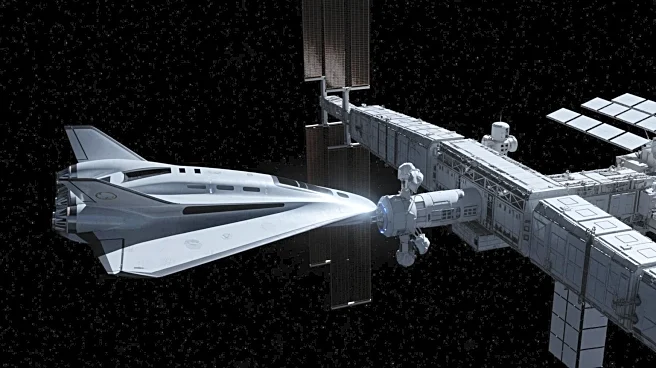What's Happening?
President Trump has suggested that the recent incident at Rafah may have been caused by 'rebels' within Hamas, indicating that the situation will be handled 'toughly but properly.' This statement follows a diplomatic incident where Israel initially suspended
humanitarian aid to Gaza, a decision that was later reversed under American pressure. The suspension was part of Israel's response to a ceasefire breach by Hamas. Despite the tensions, President Trump emphasized that the ceasefire agreement remains in effect and aims for a peaceful resolution with Hamas.
Why It's Important?
President Trump's comments highlight the ongoing complexities in the Israeli-Palestinian conflict, particularly regarding internal divisions within Hamas. The U.S. plays a crucial role in mediating these tensions, and its influence was evident in the reversal of Israel's aid suspension. The situation underscores the delicate balance of maintaining peace agreements while addressing security concerns. The incident at Rafah and the subsequent diplomatic maneuvers reflect broader geopolitical dynamics, including U.S. involvement in Middle Eastern peace processes and the challenges of dealing with non-state actors like Hamas.
What's Next?
The international community will likely monitor the situation closely, with potential diplomatic efforts to reinforce the ceasefire and address humanitarian needs in Gaza. The U.S. may continue to exert pressure on both Israel and Hamas to adhere to peace agreements. The internal dynamics within Hamas could lead to further developments, impacting the stability of the ceasefire. Ongoing dialogue between the involved parties and international stakeholders will be crucial in preventing further escalation.














